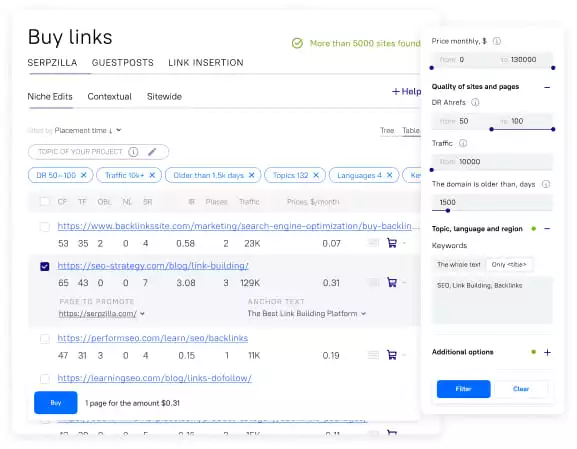Creating an effective SEO strategy for e-commerce websites is crucial for increasing visibility in search engines and attracting potential customers. Here is a step-by-step guide on optimizing your site for search engines.
1. Keyword Research
The first step in SEO for e-commerce is thorough keyword research. You need to understand the queries your potential customers use when searching for the products you offer.
- Use keyword research tools like Google Keyword Planner, Ahrefs, or SEMrush.
- Focus on long-tail keywords that can bring a targeted audience to your site.
2. Site Structure Optimization
Your site’s structure should be intuitive for both search engines and users.
- Ensure your site has a clear hierarchy and simple navigation structure.
- Create an XML sitemap and submit it to Google Search Console.
3. Product Pages Optimization
Product pages play a key role in e-commerce SEO.
- Ensure each product has a unique and detailed description.
- Use high-quality images of products.
- Include customer reviews on product pages.
4. Improving User Experience (UX)
The quality of user experience on your site directly affects SEO.
- Make sure your site loads quickly.
- Make your site responsive for mobile devices.
- Enhance site navigation ease.
5. Content Creation
Content helps to attract attention to your site and improve SEO.
- Create useful and informative content that will interest your audience.
- Regularly publish articles, product reviews, guides, and tips in your blog.
6. Internal Linking
Internal linking helps search engines better understand the structure of your site.
- Create links between pages on your site, especially between product pages and relevant blog articles.
7. Acquiring External Links
External links from authoritative sites can significantly improve your SEO.
- Aim to get links from sites within your niche.
- Use content marketing and public speaking strategies to attract external links.
8. Analysis and Monitoring
Regularly analyze the effectiveness of your SEO strategy.
- Use analytics tools like Google Analytics to track traffic and conversions.
- Adapt and adjust your strategy based on the analysis of collected data.
9. Optimization for Voice Search
As voice search becomes increasingly popular each year, it’s important to optimize your site for this type of queries as well.
- Include questions and answers in your content that might be used in voice searches.
- Optimize content for natural, conversational language.
10. Utilizing Social Signals
While social signals do not directly impact SEO, your brand’s activity on social media can increase recognition and drive additional traffic to your site.
- Actively manage your brand’s pages on social media.
- Regularly post interesting and useful content.
- Engage your audience in conversation and discussion.
11. Managing Customer Reviews
Customer reviews can significantly influence the decision of potential buyers and improve search engine visibility.
- Encourage customers to leave reviews about your products or services.
- Respond to reviews, both positive and negative, to show that you value your customers’ opinions.
12. Technical Optimization
Technical aspects of your site also play an important role in SEO.
- Check your site for broken links and fix them.
- Improve page loading speeds.
- Ensure your site is secure and uses HTTPS.
Boost your SEO results! Link building has become fast and easy with Serpzilla. Buy quality backlinks on authority websites with high DR.

Conclusion
SEO for e-commerce sites requires a comprehensive approach and continuous improvement. Remember, search algorithms are regularly updated, so it’s important to keep up with the latest trends and adapt your strategy accordingly. Focus on creating quality content, improving user experience, and building your site’s authority to attract more traffic and increase sales.







